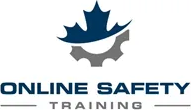TDG Training in Canada

Understanding the Significance: Why TDG Training Is a Federal Requirement in Canada
In the vast and varied landscape of Canada’s transportation industry, ensuring the safe handling and transportation of dangerous goods (DG) stands as a paramount concern. From hazardous chemicals and flammable liquids to compressed gases and infectious substances, the transportation of DG presents unique risks that demand specialized knowledge and precautions. To safeguard public safety, protect the environment, and mitigate the potential for accidents, Transport Canada mandates the training of individuals involved in the transportation of dangerous goods through the Transportation of Dangerous Goods (TDG) training program. This article delves into the reasons why TDG training is a federal requirement in Canada and explores the importance of compliance with TDG regulations.
Protecting Public Safety
The primary objective of TDG training is to protect public safety by ensuring that individuals involved in the transportation of dangerous goods possess the knowledge and skills necessary to handle, package, label, and transport hazardous materials safely and responsibly. Mishandling or improper transportation of DG can lead to catastrophic consequences, including chemical spills, fires, explosions, and environmental contamination. By providing comprehensive training on TDG regulations, hazard identification, emergency response procedures, and best practices for handling dangerous goods, the TDG program aims to reduce the risk of accidents and minimize the potential impact on public health and safety.
Environmental Protection
In addition to safeguarding human health and safety, TDG training plays a crucial role in protecting the environment from the adverse effects of DG spills and releases. Canada’s vast and diverse ecosystems are home to a wealth of natural resources, wildlife habitats, and sensitive ecosystems that must be preserved and safeguarded. Accidental spills or leaks of hazardous materials during transportation can have devastating consequences for the environment, contaminating soil, waterways, and air quality, and posing long-term ecological risks.
By educating individuals on the proper handling, containment, and cleanup of dangerous goods, TDG training helps mitigate the environmental impact of transportation-related incidents. Training participants learn to recognize environmental hazards, implement spill response measures, and minimize the spread of contaminants, thereby reducing the ecological footprint of DG transportation activities.
Regulatory Compliance
The transportation of dangerous goods in Canada is governed by the Transportation of Dangerous Goods Act and Regulations (TDG Act and Regulations), which establish comprehensive requirements for the handling, transportation, and documentation of hazardous materials. Compliance with TDG regulations is mandatory for all individuals and organizations involved in the transportation of dangerous goods, including shippers, carriers, drivers, and consignees.
TDG training is a federal requirement under Part 6 of the TDG Regulations, which stipulates that any person involved in the handling, offering for transport, or transportation of dangerous goods must undergo appropriate training and hold a valid TDG training certificate. Failure to comply with TDG training requirements can result in significant penalties, fines, and legal consequences for non-compliant individuals and organizations.
Promoting Industry Best Practices
Beyond regulatory compliance, TDG training serves as a catalyst for promoting industry best practices and standards for the safe transportation of dangerous goods. The TDG program covers a wide range of topics, including hazard classification, packaging requirements, labeling and marking, placarding, documentation, emergency response, and security measures.
By equipping transportation professionals with up-to-date knowledge and skills, TDG training empowers individuals to adopt best practices and adhere to the highest safety standards in their day-to-day operations. This proactive approach not only enhances safety and compliance but also fosters a culture of responsibility, accountability, and continuous improvement within the transportation industry.
Facilitating Emergency Preparedness and Response
In the event of a transportation-related incident involving dangerous goods, swift and effective emergency response is essential to mitigate risks, protect lives, and minimize property damage. TDG training plays a vital role in preparing individuals to respond calmly, confidently, and decisively in emergency situations involving hazardous materials.
Training participants learn to recognize the signs of a DG emergency, implement emergency response procedures, communicate effectively with emergency responders, and assist with evacuation, containment, and cleanup efforts. By enhancing emergency preparedness and response capabilities, TDG training helps ensure a coordinated and efficient response to transportation incidents, thereby reducing the severity of potential consequences and enhancing overall public safety.
TDG training is a federal requirement in Canada due to its critical importance in protecting public safety, safeguarding the environment, ensuring regulatory compliance, promoting industry best practices, and facilitating emergency preparedness and response. By equipping individuals involved in the transportation of dangerous goods with the knowledge, skills, and resources they need to handle hazardous materials safely and responsibly, TDG training helps mitigate risks, prevent accidents, and minimize the impact of transportation-related incidents on communities, ecosystems, and the economy. As Canada continues to evolve and grow, the importance of TDG training remains steadfast, underscoring its role as a cornerstone of safe and sustainable transportation practices across the country.
Categories
- Aerial Lift
- ATV Training
- Bear Awareness
- Chainsaw Training
- Confined Space
- Defensive Driving
- Forklift Training
- Lockout Tagout
- Online Safety Training
- Ontario Traffic Manual
- Overhead Crane
- Pipeline Construction Safety Training
- Propane Handling
- Safety Training Benefits
- Scissor Lift
- Skid Steer Training
- Space Awareness
- TDG
- Telehandler Forklift
- Tick Safety & Lyme Disease Prevention
- Traffic Control
- Train the Trainer course
- Training Course
- Uncategorized
- WHMIS
- WHMIS Train the Trainer
- Workplace Harassment and Violence Preventiont
